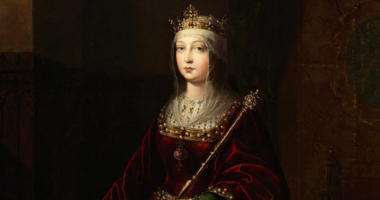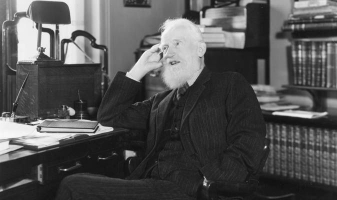Top 7 Interesting Facts about Heinrich Himmler
Heinrich Himmler, the mastermind behind the Holocaust, was one of the most powerful men in Nazi Germany. He led the Holocaust, which resulted in the deaths of ... read more...over six million Jews because he was obsessed with racial purity. Himmler built concentration camps under the direction of Adolf Hitler, where between 11 and 14 million people perished. His allegiance to Hitler did, however, wane when Germany was set to lose the war; he abandoned Hitler and rescued himself. See what made Heinrich Himmler such a terrifying man during the Nazi Regime by reading these interesting facts about Heinrich Himmler that are provided below.
-
On 7 October 1900, Heinrich Luitpold Himmler was born in Munich to a traditional Roman Catholic middle-class family with deep ties to the Bavarian royal family. His mother, Anna Maria Himmler, was a devoted Roman Catholic, and his father, Joseph Gebhard Himmler, was a teacher.
His godfather, Prince Heinrich of Bavaria, a member of the Bavarian royal family who had been taught by Gebhard Himmler, was the originator of Himmler's initial name, Heinrich. His father was the deputy principal of a grammar school in Landshut, where he went to school. Although he did well in school, he had difficulties in social situations and sports. He had trouble in sports. He had terrible health, with chronic stomach problems as well as other conditions. He regularly used weights and exercised to build strength when he was younger. However, as his peers would recall, Heinrich Himmler continued to be a studious but awkward person in social situations.
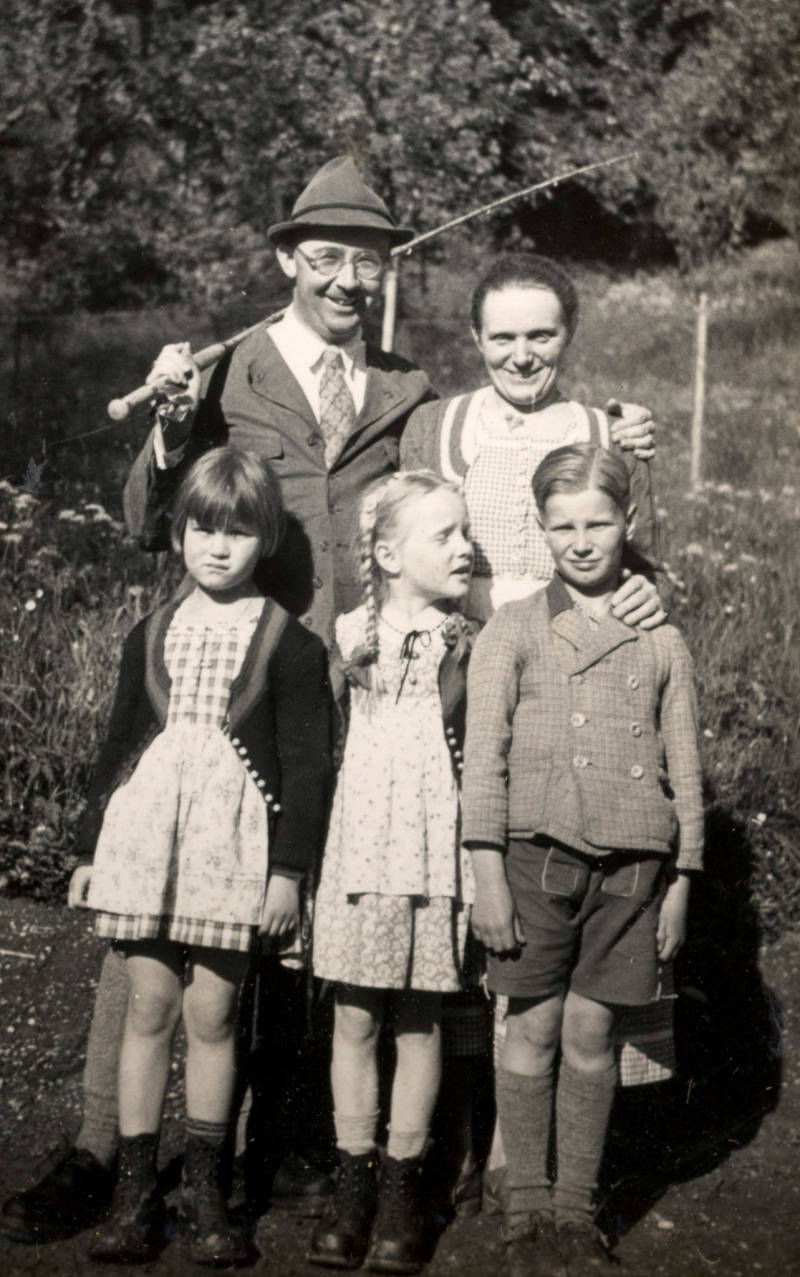
Photo: https://www.nytimes.com/ 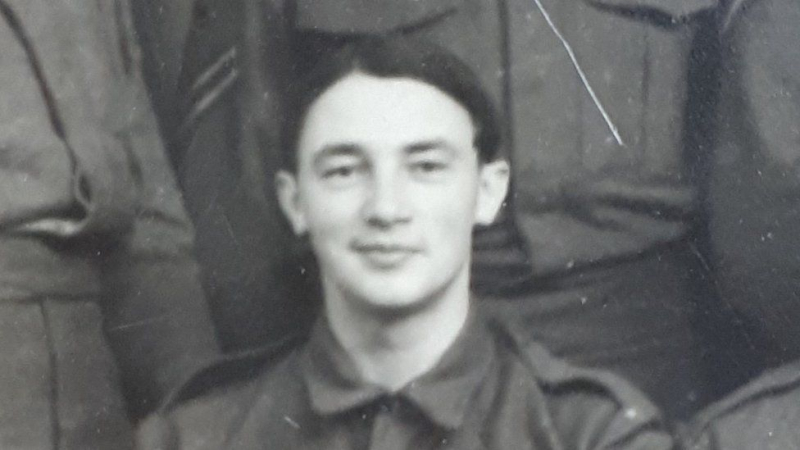
Photo: https://www.bbc.com/ -
Heinrich started writing in his diary when he was 10 years old, which is one of the most interesting facts about Heinrich Himmler. Entries therein demonstrated how his ideas and ideology evolved. According to his diary, Himmler was very interested in current affairs, duels, and "the serious talk of religion and sex."
Antisemitism persisted and thrived in Germany and other areas of Europe even though numerous laws that discriminated against non-Christians including Jews and other minority groups had been removed with the unification of Germany in 1871. By the time he entered university, Himmler was antisemitic, but not particularly so; pupils at his school would shun their Jewish friends.
He first encountered Ernst Röhm, a founding member of the Nazi Party and the Sturmabteilung, in his second year of college (Storm Battalion). As a decorated combat veteran that Himmler respected, Röhm persuaded Himmler to join the Imperial War Flag Society, an antisemitic nationalist organization. Himmler's diary entries from 1922 show a rise in antisemitic statements and a lot of conversations about Jews with his classmates as he became increasingly interested in the "Jewish topic".
Indeed, Himmler's diary documents his ideological development from a rebellious youngster to one of the most prominent figures in Nazi Germany.
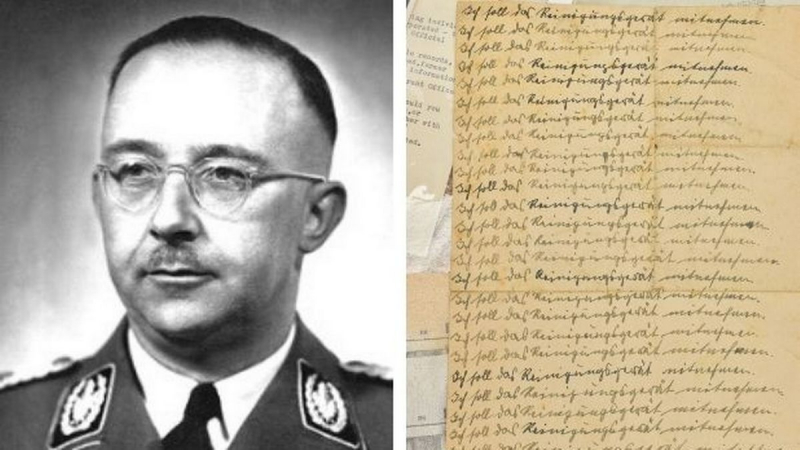
Photo: https://www.birminghammail.co.uk/ 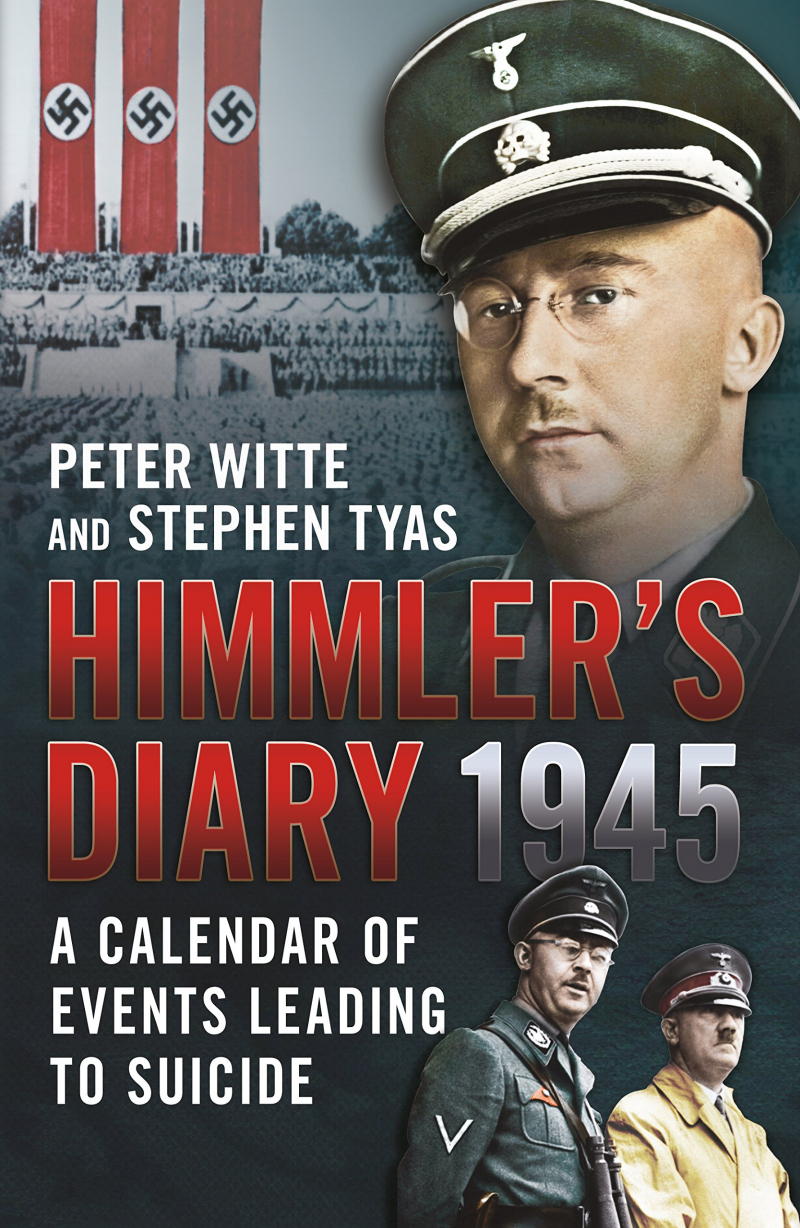
Photo: https://www.amazon.com/ -
Known as one of the most interesting facts about Heinrich Himmler is his enthusiasm for the occult and mysticism never faltered.
His reading lists were dominated by antisemitic publications, German mythologies, and occult tracts as early as 1922, according to entries in his diary. When the time came to renounce Catholicism, Himmler began to find his worldviews in occult and Germanic folklore. These ideas eventually became his religion. He exploited this passion to support his racist beliefs, which held that the Nordic and Aryan races were superior.
He promoted ancestor worship among the SS members during his tenure as leader and substituted Christianity with an ideology that rejected humanitarianism. Heinrich Himmler established The Ahnenerbe, a research organization, in 1935. Its mission was to explore the planet in quest of evidence of the Germanic race's prehistoric origins and superiority over other races.
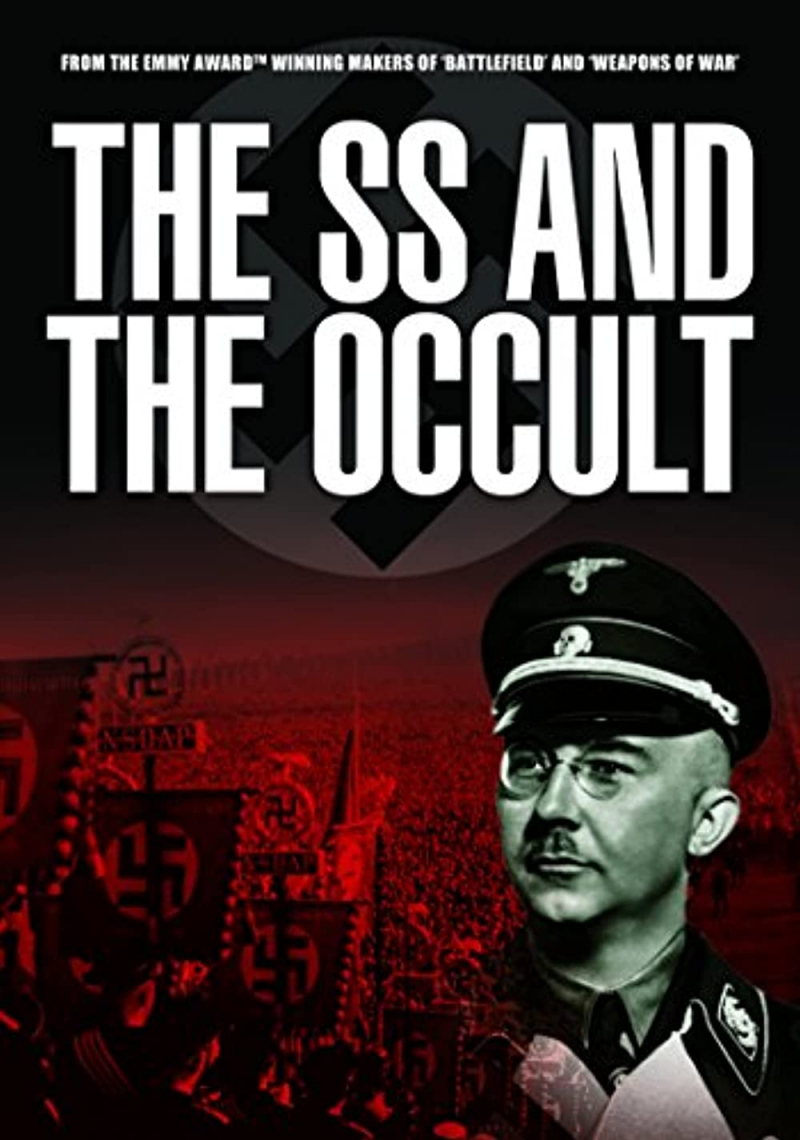
Photo: https://www.imdb.com/ 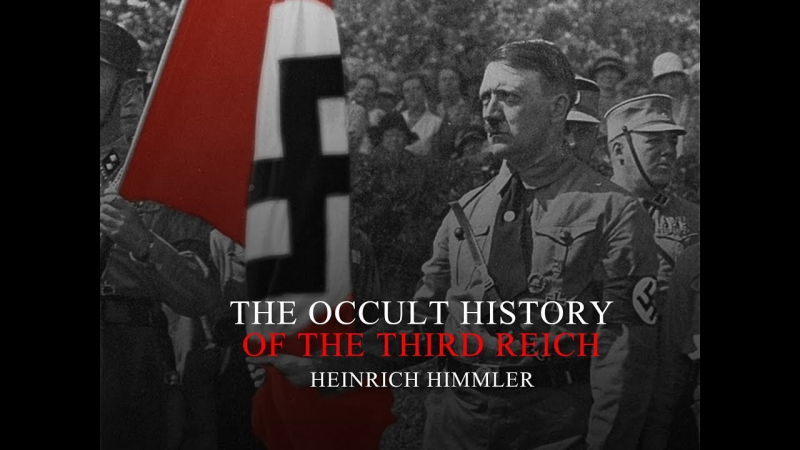
Photo: https://www.youtube.com/ -
Heinrich Himmler experienced several setbacks in life that rocked his worldview.
First, while Himmler was still in training in November 1918, when Germany was defeated, the war came to an end, depriving him of the chance to serve as an officer or in battle. After being released on December 18th, he went back to Landshut. Himmler finished grammar school following the war.
His political beliefs shifted to the extreme right after the 24 June murder of Foreign Minister Walther Rathenau, and he joined protests against the Treaty of Versailles. His parents could no longer afford to send all three of their sons to school due to the rampant hyperinflation. He was obliged to take a low-paying office job after receiving his agriculture diploma because he was dissatisfied with his inability to pursue a career in the military and his parents' inability to pay for his doctoral studies.
Second, Himmler lost his job as a result of the failure of Adolf Hitler and the Nazi Party's effort to overthrow the government in the Munich Beer Hall Putsch. Nobody is interested in hiring him as an agronomic because of his role in Nazi agitation. He was forced to return to living with his parents as a result.
These things eventually made Himmler alter. He turned aggressive and irritable. He became estranged from both his buddies and his family as a result.
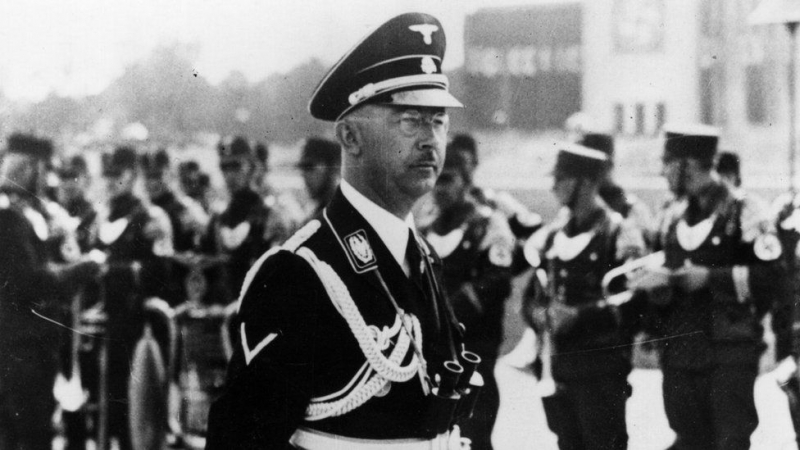
Photo: https://www.bbc.com/ 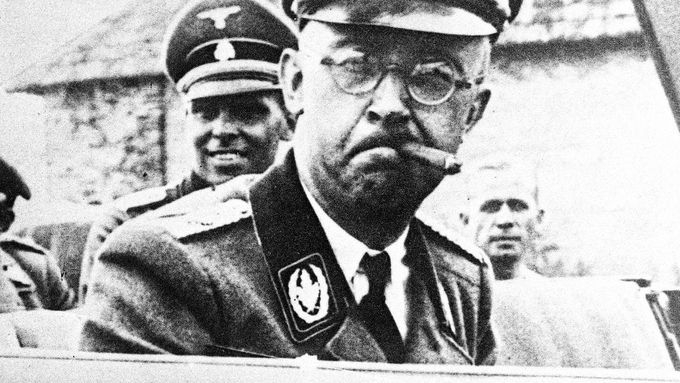
Photo: https://zpravy.aktualne.cz/ -
In the 1932 election, the Nazi Party received almost 37% of the vote and 230 seats after Adolf Hitler utilized populist rhetoric to blame the Jews for the ongoing economic suffering. Hitler was then appointed Chancellor of Germany.
Himmler enlisted with right-wing paramilitary groups. He took part in one of those groups, Ernst Röhm's Reichskriegsflagge ("Imperial War Flag"), in Adolf Hitler's failed Beer Hall Putsch in Munich in November 1923. Himmler joined the Nazi Party in 1925, ascended quickly through the ranks of the organization, and was chosen as a Reichstag (German parliament) deputy in 1930. However, his appointment as Reichsführer of the SS (Schutzstaffel; "Protective Echelon"), Hitler's elite bodyguard, which was supposedly in charge of the Sturmabteilung (SA; "Assault Division"), lay the groundwork for his future significance. Himmler started the SS's growth right away, and by 1933, it had more than 50,000 members. Himmler became the charge of the Munich police on January 30, 1933, and shortly after that, he was appointed chief of all German police forces outside of Prussia. As a result, Hitler founded Dachau, the first concentration camp of the Third Reich.
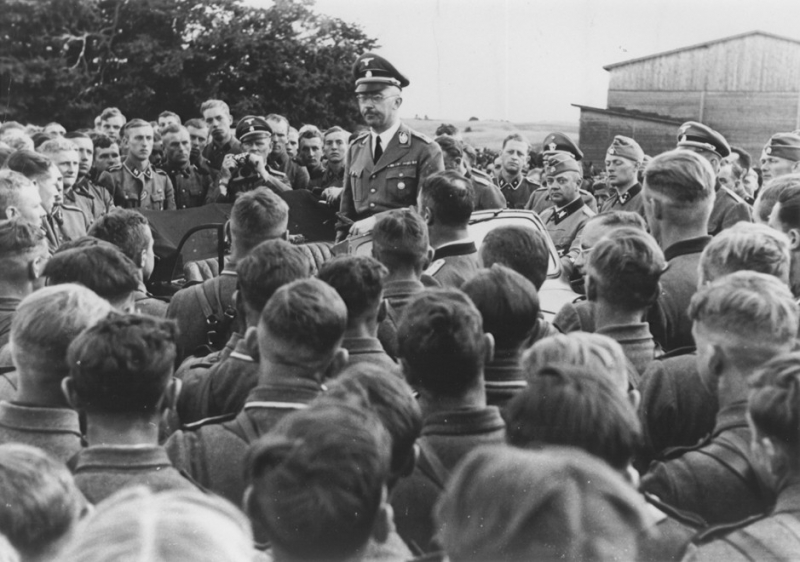
Photo: https://encyclopedia.ushmm.org/ 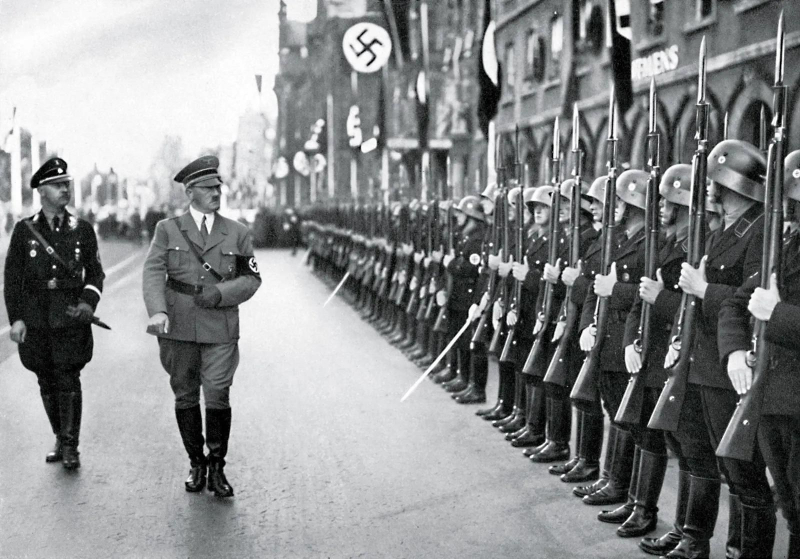
Photo: https://www.britannica.com/ -
Adolf Hitler appointed Heinrich Himmler as his Reichsführer-SS, the highest official SS rank with the authority to operate independently and issue direct commands from the Führer. As a result, these two men interacted frequently.
Hitler's Führerprinzip was upheld by Himmler. According to this idea, subordinates must always obey their superiors. Himmler thus subordinated himself to Hitler and devotedly carried out his orders.
A fascinating Heinrich Himmler fact is that he became one of the most powerful individuals in the Third Reich. His capacity for power expansion and consolidation contributed to his rise to fame. Thus, he truly has equal power as Adolf Hitler despite having a bland and pedantic attitude.
Himmler had a reputation for being cunning, ambitious, and vicious. Hitler was identified as the most heinous mass murderer in history and the mastermind of the Holocaust.
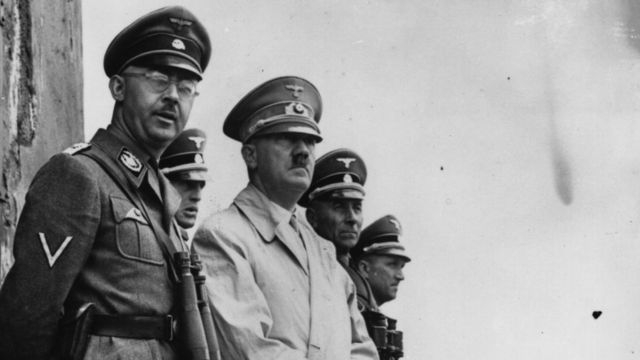
Photo: https://www.bbc.com/ 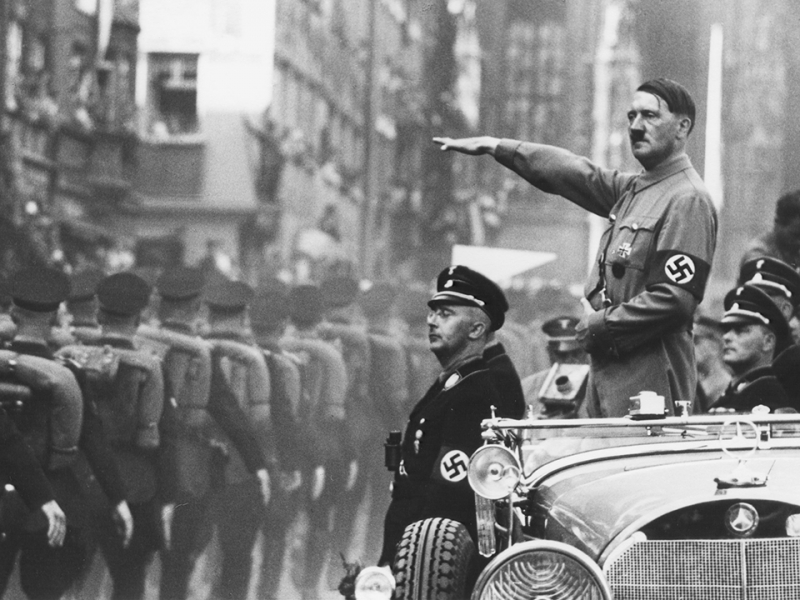
Photo: https://www.nationalww2museum.org/ -
Himmler developed more psychosomatic diseases in the last several months of the war and was gradually pushed away by Hitler's gang. It was discovered in April 1945 that Himmler wanted to succeed Hitler and had arranged a surrender to the Western Allies with both the Western Allies and Swedish Greve (Count) Folke Bernadotte (to ally against the Soviet Union). Hitler swiftly ordered Himmler's arrest and removed him from all of his positions. Himmler attempted to flee while dressing like a regular soldier. He used poison to end his life while being held captive by the Western Allies.
Himmler was a brilliant administrator, a cunning and ruthless power-seeker, and he was slavishly loyal to Hitler up until the last few weeks of the war. As the main planner of the Holocaust, he blended a fondness for philosophical mysticism with a fanatical, cold-blooded dedication to Nazi racism. More than any other person, Himmler was the one who established the system of state terror through which the Third Reich quashed its critics, wiped out its internal rivals, and coerced German citizens to submit.
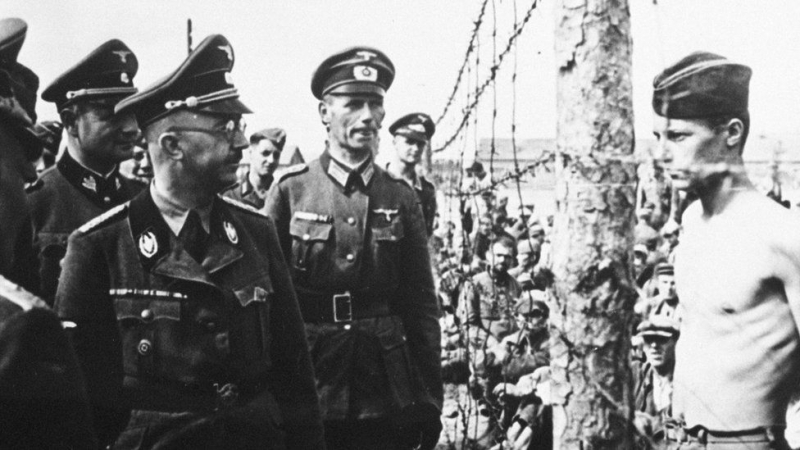
Photo: https://ichef.bbci.co.uk/ 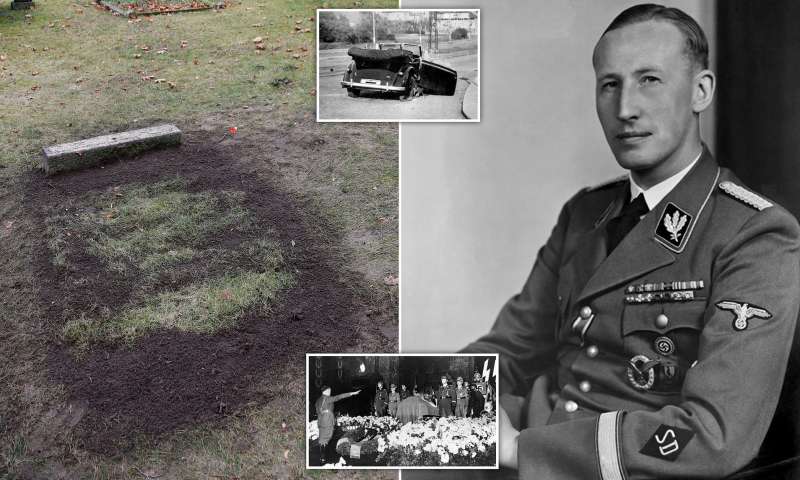
Photo: https://www.dailymail.co.uk/


























